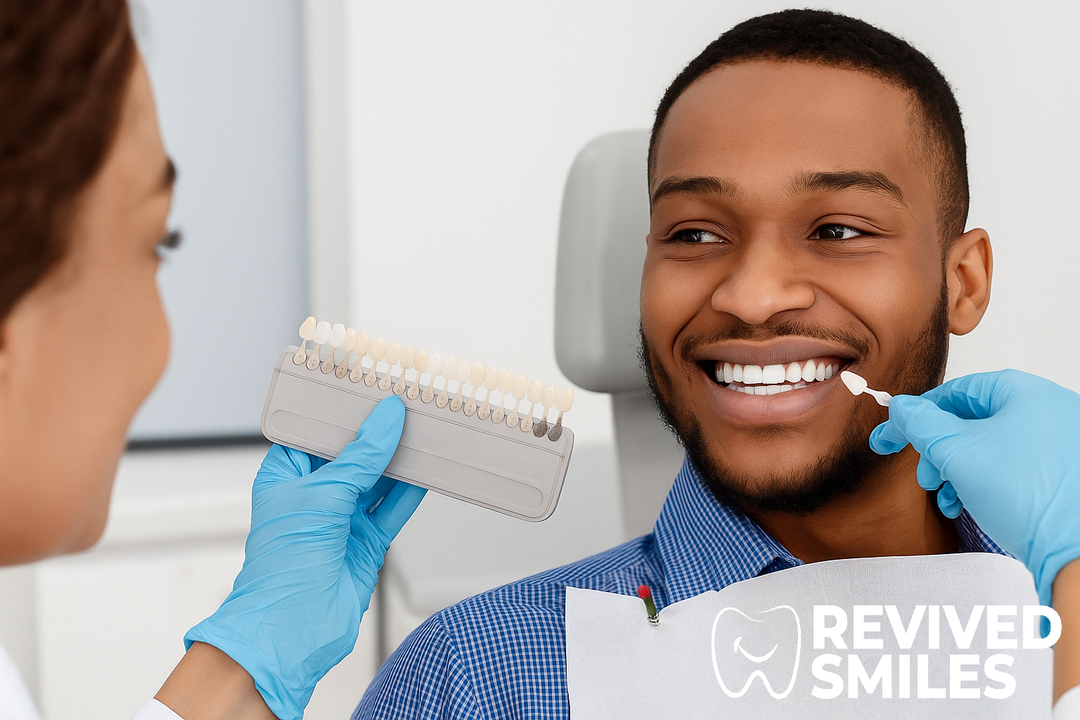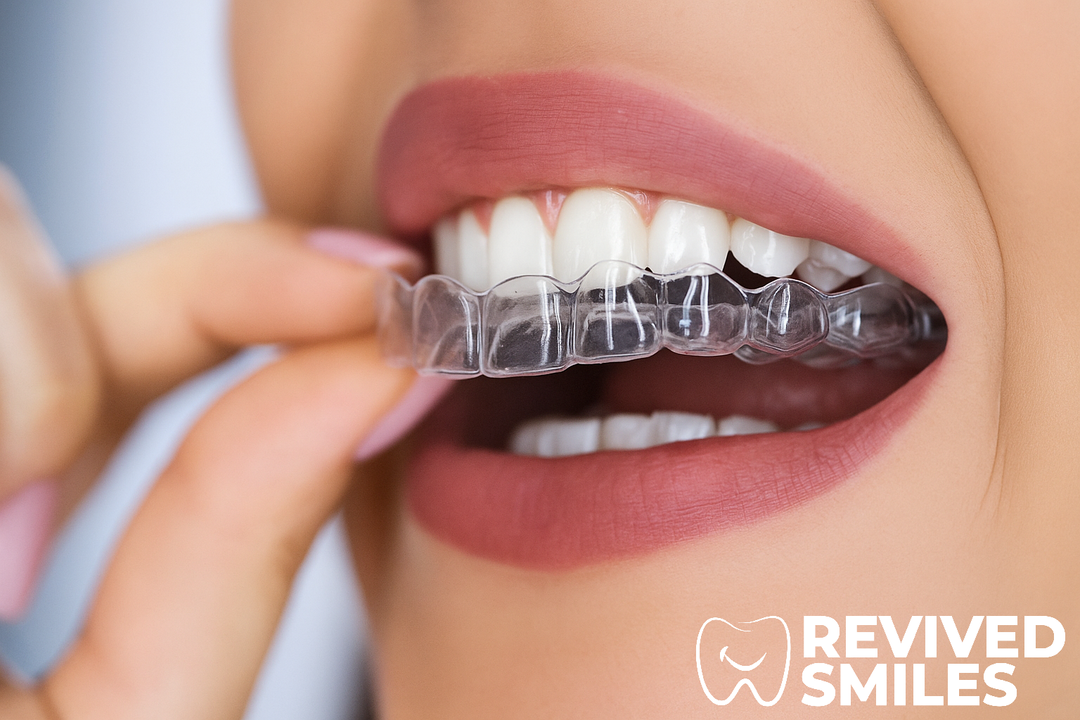5 Psychological Impacts Tooth Loss Can Have in Adulthood

Tooth loss in adulthood is more than just a cosmetic concern—it can profoundly impact your psychological well-being. Whether the result of injury, decay, or other dental issues, losing a tooth can lead to significant emotional and mental challenges that affect various aspects of your life. In this comprehensive guide, we’ll explore five major psychological impacts of tooth loss and discuss how solutions like partial dentures can help you regain your confidence, restore your self-esteem, and improve your overall quality of life.
1. Lowered Self-Esteem
Self-esteem is closely tied to how we perceive ourselves and how we believe others perceive us. A complete, healthy smile is often associated with attractiveness and confidence, so it’s no surprise that tooth loss can severely impact self-esteem.
-
Impact: Adults who lose one or more teeth may start to feel self-conscious about their appearance. They might avoid smiling, laughing, or even speaking in public, fearing that others will notice the gap in their teeth. This self-consciousness can spiral into a deeper sense of inadequacy and lower self-worth, affecting how they interact with others and how they view themselves.
-
Solution: Restoring your smile with partial dentures or other dental prosthetics can play a significant role in rebuilding self-esteem. Modern partial dentures are designed to look natural and blend seamlessly with your existing teeth, allowing you to smile, speak, and interact with confidence. The simple act of filling in the gaps can help you feel whole again, boosting your self-image and allowing you to reclaim your sense of self.
2. Social Anxiety and Withdrawal
Social interactions often involve smiling, laughing, and talking—activities that can become anxiety-inducing if you’re self-conscious about missing teeth. This anxiety can lead to social withdrawal, where you avoid interactions that once brought you joy.
-
Impact: The fear of being judged or embarrassed due to missing teeth can cause significant social anxiety. You may start to avoid social gatherings, refrain from speaking up in group settings, or feel reluctant to engage in activities that require close contact with others. Over time, this social withdrawal can lead to feelings of loneliness, isolation, and even depression.
-
Solution: Addressing tooth loss with a natural-looking dental appliance, such as partial dentures, can significantly reduce social anxiety. When you feel confident about your smile, you’re more likely to engage in social activities without fear of judgment. Restoring your teeth can open the door to more fulfilling social interactions, helping you reconnect with friends, family, and colleagues.
3. Depression and Emotional Distress
The emotional toll of tooth loss can extend beyond social anxiety, leading to more severe psychological issues like depression. The changes in your appearance, combined with the loss of functionality, can make you feel like you’ve lost a part of your identity.
-
Impact: Depression related to tooth loss can manifest in various ways, including persistent sadness, feelings of hopelessness, and a lack of motivation. You may find it difficult to enjoy activities that once brought you pleasure, and the emotional distress can affect your relationships, work performance, and overall quality of life. The stigma associated with missing teeth can exacerbate these feelings, making it harder to seek help or talk about your experiences.
-
Solution: Dental restoration solutions, such as partial dentures, can help alleviate the emotional distress associated with tooth loss. By restoring the appearance and function of your teeth, you can regain a sense of normalcy and control over your life. The confidence that comes from having a complete smile can lift your spirits, reduce feelings of depression, and improve your mental well-being.
4. Impact on Professional Life
In the professional world, appearance and self-presentation can significantly influence how you’re perceived by others. Tooth loss can create a barrier to professional success, especially if your job involves frequent interaction with clients, colleagues, or the public.
-
Impact: Missing teeth can make you feel less confident during important meetings, presentations, or job interviews. You might worry that others perceive you as less competent, unprofessional, or even neglectful of your health. This fear can lead to decreased job performance, hesitation to pursue new career opportunities, and reduced job satisfaction. In some cases, it can even limit your career advancement, as you might shy away from roles that require public speaking or leadership.
-
Solution: Restoring your smile with partial dentures can enhance your professional image, giving you the confidence to excel in your career. A complete, healthy smile can improve your self-assurance, making it easier to communicate effectively, build relationships, and pursue opportunities with enthusiasm. With a restored smile, you can project the professionalism and competence that aligns with your skills and ambitions.
5. Fear of Further Tooth Loss
Experiencing tooth loss can lead to a heightened fear of losing more teeth in the future. This fear can dominate your thoughts, creating a constant state of worry that affects your mental well-being and daily life.
-
Impact: The anxiety surrounding potential further tooth loss can lead to obsessive behaviors, such as excessive oral hygiene practices, avoiding certain foods, or constantly checking your teeth in the mirror. This preoccupation with tooth loss can cause significant stress, disrupt your daily routines, and negatively impact your overall quality of life. The fear may also prevent you from enjoying social activities or eating out, as you worry about damaging your remaining teeth.
-
Solution: Addressing the initial tooth loss with a durable and reliable dental solution like partial dentures can help alleviate this fear by restoring stability to your dental health. Partial dentures can provide the necessary support for your remaining teeth, reducing the risk of further loss. Knowing that you’ve taken proactive steps to protect your oral health can bring peace of mind and allow you to focus on enjoying life rather than worrying about what might happen next.
Conclusion: Choose Revived Smiles for High-Quality Partial Dentures
Tooth loss in adulthood can have profound psychological effects, from lowered self-esteem and social anxiety to depression and professional challenges. However, you don’t have to live with the emotional burden of missing teeth. At Revived Smiles, we offer high-quality partial dentures and other dental solutions designed to restore your smile and help you regain your confidence.
Our expert team is dedicated to providing personalized care that addresses both the physical and psychological impacts of tooth loss. With our natural-looking partial dentures, you can enjoy a complete, healthy smile that enhances your self-esteem, reduces anxiety, and improves your overall quality of life.
Visit Revived Smiles today to explore our range of partial denture options and take the first step toward overcoming the psychological impacts of tooth loss.





This is spot on and what I have been dealing with for years. Unfortunately I don’t feel like the mental effects are really understood. Nobody talks about it on a personal and real level. I can vogue people will feel bad for what you are going through however I feel incredibly alone because it is so much more than acknowledging it. It feels like a chronic illness without the mental and emotional support you would receive with something more understood i.e cancer…
Leave a comment